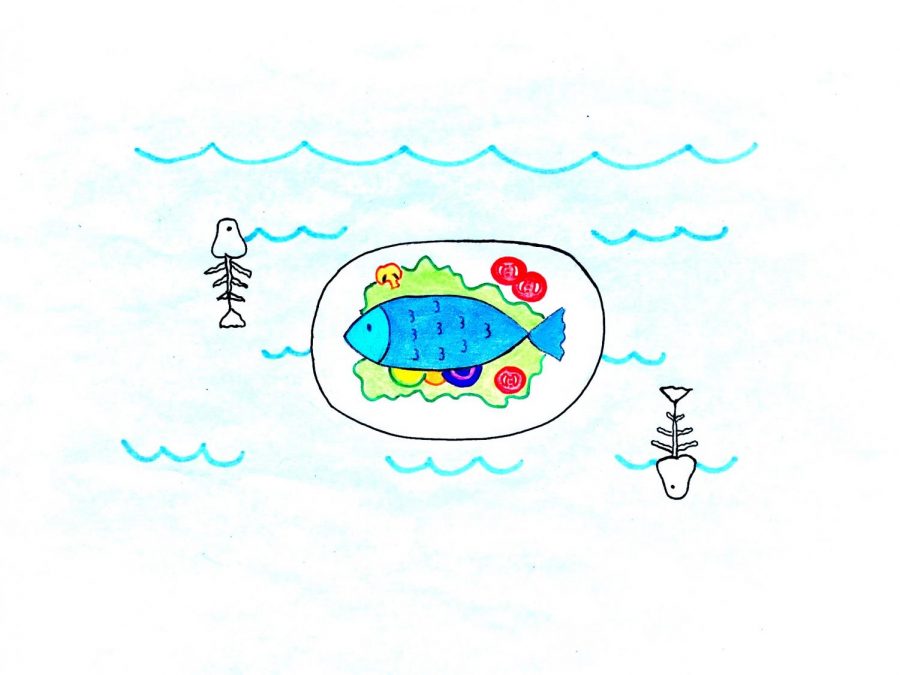Pescetarianism
October 30, 2017
In August, I finally decided to go through my New Year’s resolution to become a pescetarian. For those who don’t know, pescetarianism is, according to Wikipedia, “the practice of following a diet that includes fish or other seafood, but not the flesh of other animals.” Like vegetarians, a lot of pescetarians choose to eat dairy products and eggs as well.
The Greek philosopher Pythagoras first introduced a form of pescetarianism when he reportedly ate his meals without any kind of meat except fish. His followers popularized the movement because they believed it would help them live a long life. Then, the first vegetarian society was formed in Ramsgate, England on Sept. 29, 1847. Then, much later, the pescetarian society was formed in 2015.
There are various reasons why people become pescetarians. Firstly, there are the environmental reasons. Because of the high demand for meat, there’s a great amount of water and land designated for cattle, poultry, and pigs. For instance, the average amount of water designated for cattle is 16,726 meters cubed per ton, and thousands of trees are chopped down to make room for land for cattle. Because of that, some pescetarians prefer to eat only fish meat to lessen their environmental impact. Also, some pescetarians only eat fish because of animal rights beliefs, as they don’t want to contribute to the factory farming issue. Also, there are pescetarians who see their diet as a transition to vegetarianism, an ethical compromise, or a practical way to get some nutrients unavailable in plant life.
However, there are people who object to pescetarianism. Some state that fish actually do feel emotions like mammals do, and are put through more pain when they are killed. Also, overfishing has also led to environmental issues, as fish are an essential part of many ecosystems in the ocean. However, many pescetarians defend themselves by stating that it really comes down to the amount of fish that we eat. Like all diets, it’s important to eat fish in limited portions to help keep a balance in the amount of fish we eat and the amount free in the ocean.
Currently, pescetarianism is one of the most rapidly growing diets in the world. It’s easy to see why, as it isn’t as strict as veganism but also offers a healthy and more environmentally-friendly alternative to a meat-based diet. And now, you know everything you need to know about pescetarianism if you want to adopt the diet as well!
Graphic courtesy of Kali Tam

